Navigating Florida’s Judicial Landscape: A Comprehensive Guide To The State’s Judicial Circuits
Navigating Florida’s Judicial Landscape: A Comprehensive Guide to the State’s Judicial Circuits
Related Articles: Navigating Florida’s Judicial Landscape: A Comprehensive Guide to the State’s Judicial Circuits
Introduction
With enthusiasm, let’s navigate through the intriguing topic related to Navigating Florida’s Judicial Landscape: A Comprehensive Guide to the State’s Judicial Circuits. Let’s weave interesting information and offer fresh perspectives to the readers.
Table of Content
- 1 Related Articles: Navigating Florida’s Judicial Landscape: A Comprehensive Guide to the State’s Judicial Circuits
- 2 Introduction
- 3 Navigating Florida’s Judicial Landscape: A Comprehensive Guide to the State’s Judicial Circuits
- 3.1 Defining Florida’s Judicial Circuits
- 3.2 Delving Deeper: Examining the Map of Florida Judicial Circuits
- 3.3 The Importance of Understanding Florida’s Judicial Circuits
- 3.4 FAQs Regarding Florida’s Judicial Circuits
- 3.5 Tips for Navigating Florida’s Judicial System
- 3.6 Conclusion: The Importance of Understanding Florida’s Judicial Circuits
- 4 Closure
Navigating Florida’s Judicial Landscape: A Comprehensive Guide to the State’s Judicial Circuits
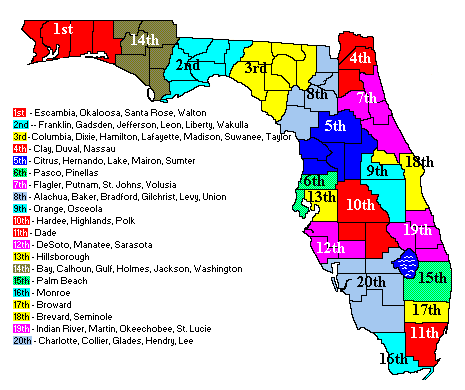
Florida’s judicial system, like its landscape, is vast and complex. Understanding the state’s judicial circuits is crucial for navigating legal matters, whether you are a resident, business owner, or legal professional. This comprehensive guide will provide a clear and detailed explanation of Florida’s judicial circuits, their functions, and their importance in the state’s legal framework.
Defining Florida’s Judicial Circuits
Florida’s judicial system is divided into 20 judicial circuits, each encompassing specific counties and serving as the primary venue for legal proceedings within its jurisdiction. These circuits are not merely geographic divisions; they represent distinct legal entities with their own unique characteristics and functions.
Understanding the Structure:
- Circuit Courts: At the heart of each circuit is a circuit court, the primary trial court for most civil and criminal cases. These courts handle a wide range of matters, including personal injury, contract disputes, family law, and felony criminal cases.
- County Courts: Each circuit also encompasses county courts, which primarily address misdemeanor criminal cases, traffic violations, small claims, and probate matters.
- Courts of Appeal: Florida’s judicial system also includes district courts of appeal, which review decisions made by circuit courts within their respective districts. Each district court of appeal covers multiple judicial circuits, ensuring consistent application of legal principles across the state.
Delving Deeper: Examining the Map of Florida Judicial Circuits
The map of Florida judicial circuits serves as a visual representation of this intricate legal structure. It allows individuals to easily identify the specific circuit responsible for their location and the types of legal matters handled within that circuit.
Key Features of the Map:
- Circuit Boundaries: The map clearly delineates the boundaries of each circuit, encompassing specific counties within its jurisdiction.
- Circuit Numbering: Each circuit is assigned a unique number, ranging from 1 to 20, allowing for easy identification and reference.
- Court Locations: The map may also indicate the locations of major courthouses within each circuit, facilitating access to legal resources.
The Importance of Understanding Florida’s Judicial Circuits
Knowledge of Florida’s judicial circuits is essential for various stakeholders, including:
- Residents: Understanding the circuit in which they reside helps individuals navigate legal matters, locate relevant court information, and access legal resources.
- Businesses: Businesses operating within Florida need to be aware of the circuit governing their operations to ensure compliance with legal requirements and to resolve any legal disputes efficiently.
- Legal Professionals: Attorneys and other legal professionals rely on the map to identify the appropriate courts for their clients’ cases, ensuring proper jurisdiction and efficient case management.
FAQs Regarding Florida’s Judicial Circuits
1. How can I determine the judicial circuit I reside in?
You can easily determine your judicial circuit by using an online map or by contacting the Florida Courts website. Simply enter your address, and the website will identify the corresponding circuit and provide relevant contact information.
2. What types of cases are handled by circuit courts?
Circuit courts in Florida handle a wide range of legal matters, including:
- Civil Cases: Personal injury, contract disputes, property disputes, family law (divorce, custody, child support), and probate.
- Criminal Cases: Felonies, including murder, robbery, and drug trafficking.
- Appeals: Appeals from county courts and administrative agencies.
3. What types of cases are handled by county courts?
County courts in Florida primarily handle:
- Misdemeanor Criminal Cases: Petty theft, DUI, disorderly conduct.
- Traffic Violations: Speeding, driving without a license.
- Small Claims: Disputes involving less than $5,000.
- Probate Matters: Estate administration, wills, and guardianships.
4. How do I file a lawsuit in a Florida circuit court?
To file a lawsuit in a Florida circuit court, you must first determine the proper circuit based on the location of the defendant or the subject matter of the lawsuit. You will then need to prepare a complaint, which outlines the basis for your claim, and file it with the clerk of the court.
5. How can I find information about a specific case in a Florida circuit court?
Most Florida courts have online case management systems where you can search for case information by name, case number, or other criteria. You can also contact the clerk of the court directly for assistance.
Tips for Navigating Florida’s Judicial System
- Consult with an Attorney: If you are facing a legal matter, it is always advisable to consult with an experienced attorney who can provide guidance and represent your interests.
- Research the Circuit: Before filing a lawsuit or appearing in court, take the time to understand the specific rules and procedures of the relevant circuit.
- Utilize Online Resources: The Florida Courts website provides a wealth of information about the state’s judicial system, including case information, court schedules, and contact information.
- Be Prepared for Court: Arrive on time, dress appropriately, and bring all necessary documents and evidence.
Conclusion: The Importance of Understanding Florida’s Judicial Circuits
Florida’s judicial circuits are integral to the state’s legal system, ensuring that justice is served efficiently and fairly. By understanding the structure and functions of these circuits, individuals, businesses, and legal professionals can navigate legal matters confidently and effectively. Whether you are seeking to resolve a dispute, access court records, or simply understand the legal landscape of your community, a thorough grasp of Florida’s judicial circuits is essential.
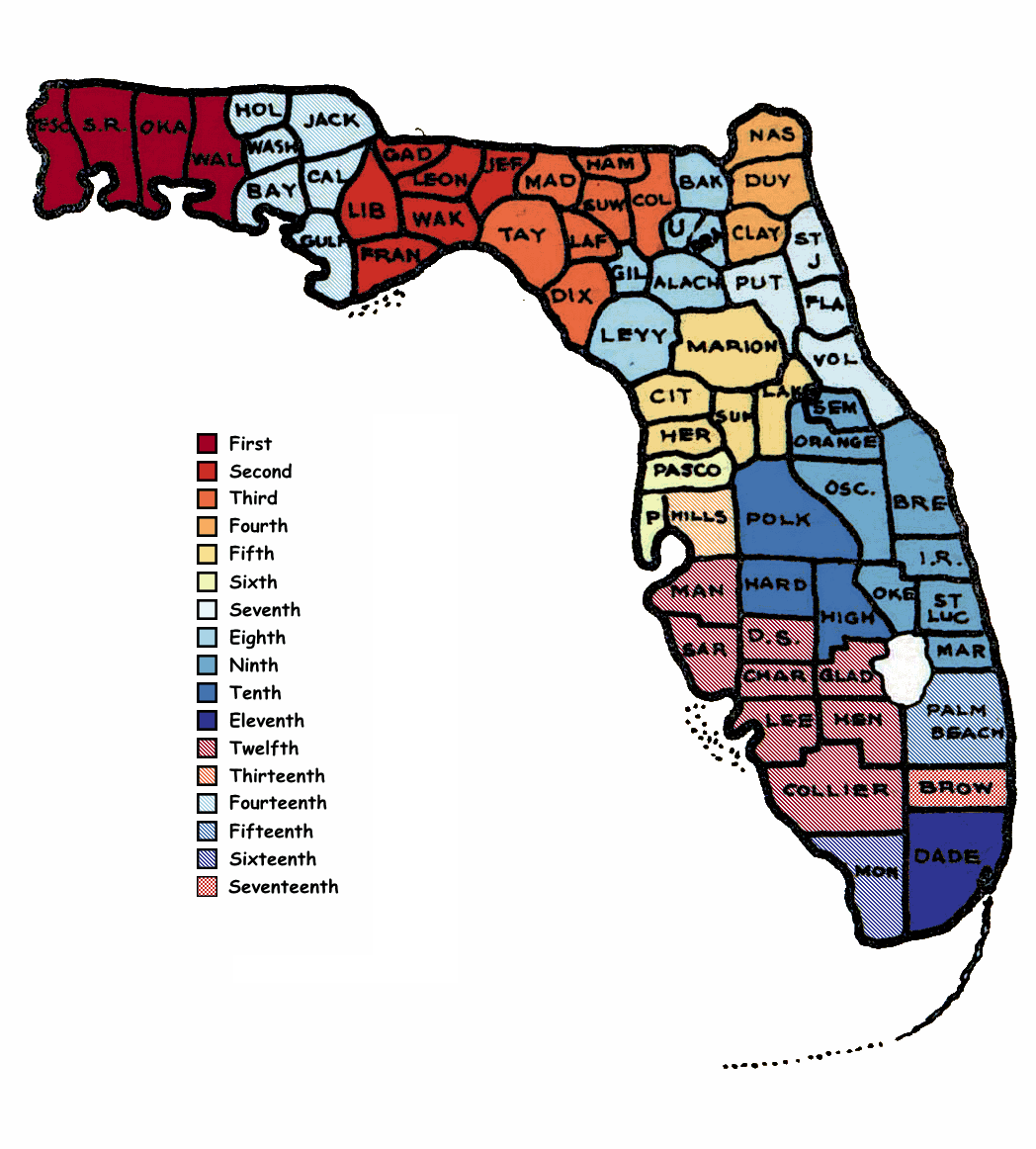
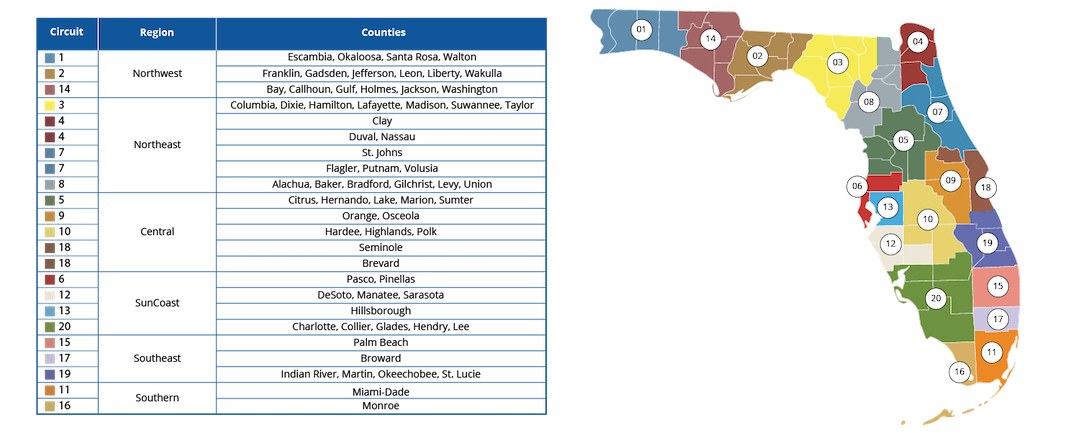



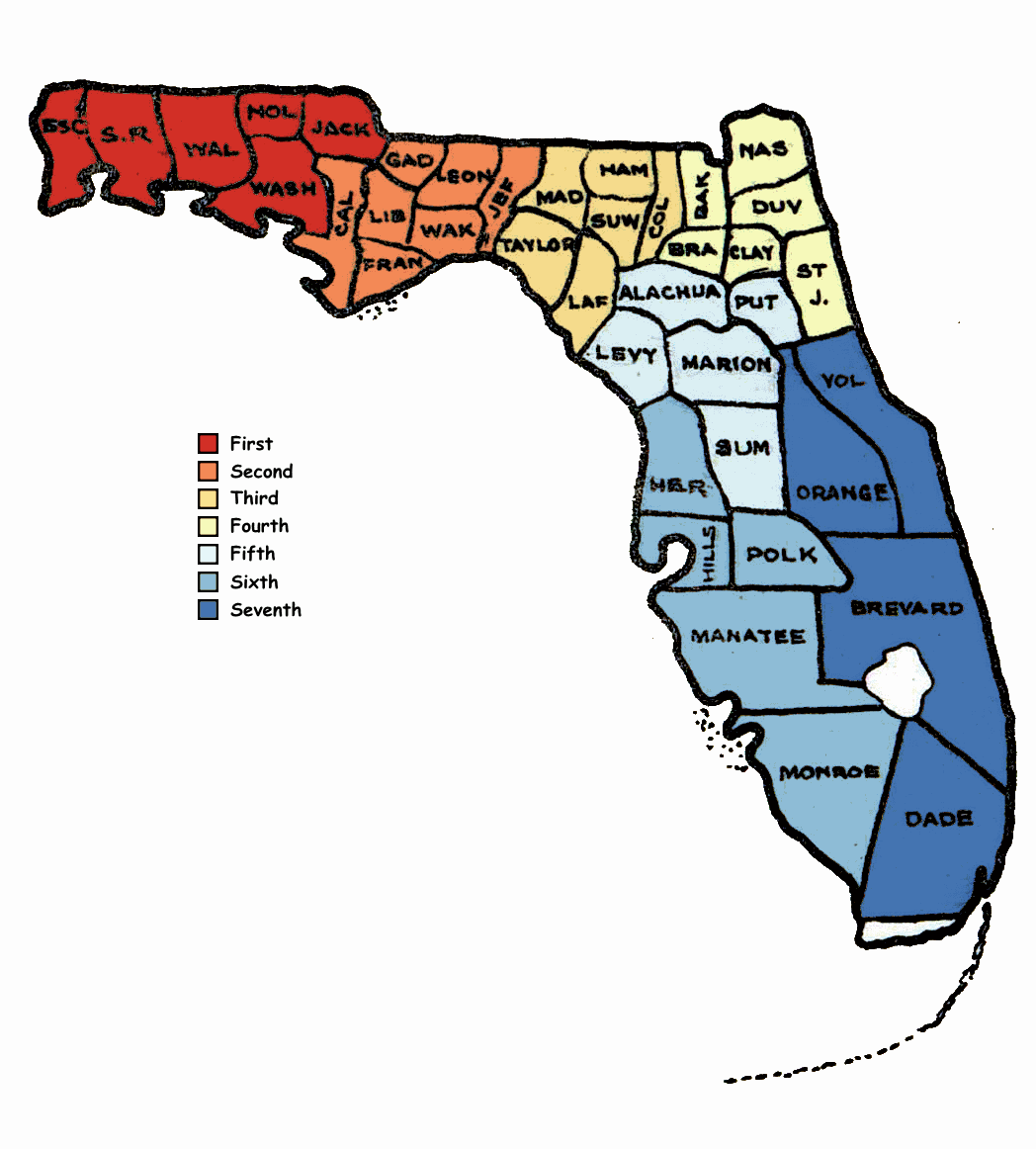
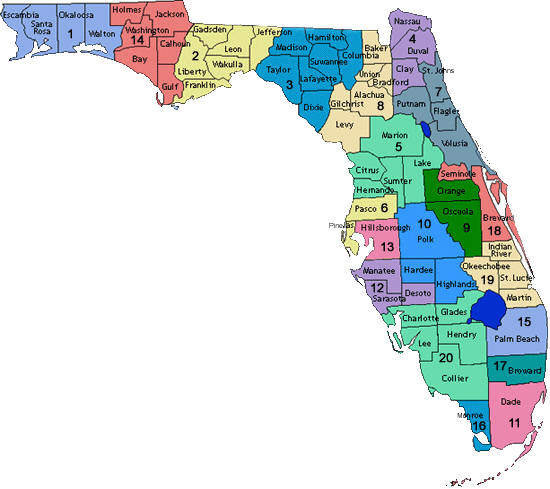

Closure
Thus, we hope this article has provided valuable insights into Navigating Florida’s Judicial Landscape: A Comprehensive Guide to the State’s Judicial Circuits. We thank you for taking the time to read this article. See you in our next article!